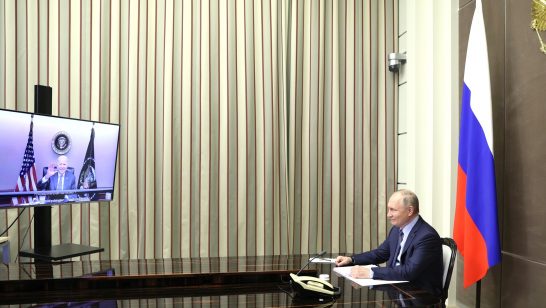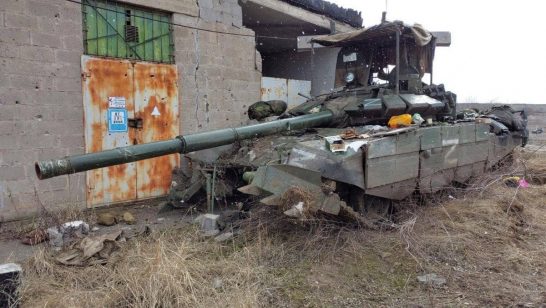
The ELN’s Younger Generation Leaders Network on Euro-Atlantic Security (YGLN) held its annual gathering from 13-16 June in Switzerland. 2022 marks the first year that the YGLN has met in person since the beginning of the COVID-19 pandemic, although it has held intensive virtual meetings throughout this period, including weekly meetings to discuss the Russian invasion of Ukraine and the consequent European security crisis. 26 participants hailed from across the European Union, as well as the United Kingdom, the United States, Russia, Canada, Turkey, Belarus, Ukraine, and elsewhere, with backgrounds in security policy, international organisations, diplomacy, civil society and economics. The key discussion themes included emerging security threats, the future of arms control, and conflict resolution, as those participating now see a full-scale war on the European continent for the first time in their lives. Coming from diverse perspectives, participants are building a common understanding of the future of European security to inform future policy.
The conference was sponsored by the Swiss Federal Department of Foreign Affairs, and meetings took place in Bern and Geneva. In Bern, YGLN participants met with Swiss governmental representatives, while in Geneva, members met with the French and Norwegian Permanent Representatives to the United Nations Office in Geneva, as well as representatives from the Swedish, German, and Dutch Missions and the United Nations Institute for Disarmament Research (UNIDIR). Members also engaged with numerous external experts at the events hosted by UNIDIR and the Swedish, Dutch, and Norwegian Missions.
In initial meetings with representatives from the Swiss Federal Department of Foreign Affairs (shown below), the conversation was centred around Swiss policies, especially regarding their recent Arms Control and Disarmament strategy. A common theme was the idea of Switzerland’s traditional neutrality; given the Russia/Ukraine war, Switzerland’s neutral position was analysed critically by many members. How does Switzerland see its position in Europe and in the world as a whole? Is it possible to be truly “neutral” given the current conflict on the European continent?
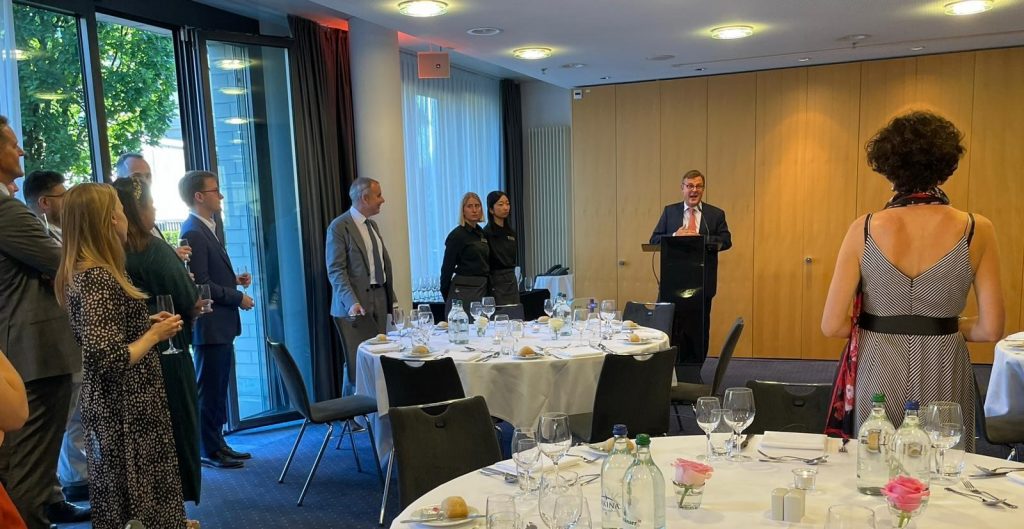
Another widely discussed topic was nuclear disarmament and non-proliferation, raised in different sessions, including with the Swiss government and at UNIDIR (shown below). A key concern was whether the failure of the Budapest Memorandum – under which Russia, the US, and the UK provided security assurances to Ukraine in connection with it joining the Nuclear Non-Proliferation Treaty – would undermine the non-proliferation regime and encourage other states to see the possession of nuclear weapons as the ultimate guarantee of their security. Will countries be as willing to give up their nuclear weapons or accept limits on nuclear capabilities? What about countries that wish to develop nuclear weapons, such as Iran, especially as the JCPOA negotiations remain fraught? How does the current situation in Ukraine affect those countries’ threat perceptions? Given Geneva’s emphasis on non-proliferation, this was a hot topic of discussion.
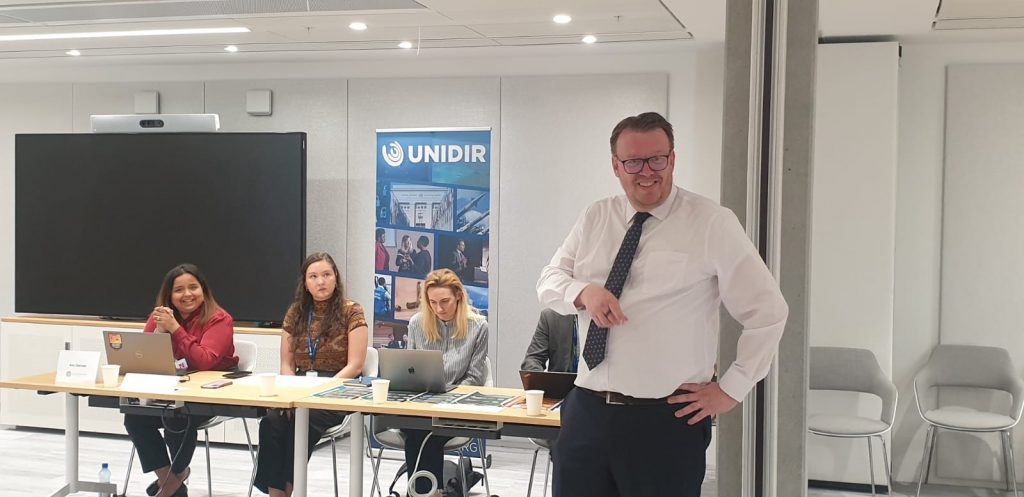
YGLN members and speakers also highlighted emerging security threats, including those linked with emerging and disruptive technologies. Discussion topics included space, cybersecurity, biosecurity, and autonomous weapon systems. In discussions with the Swiss government (shown below), questions of global governance in space were raised, as was the topic of international norms and treaties in space. At UNIDIR, YGLN member Anuradha Damale addressed questions of global governance, international norms and treaties in space as well, and YGLN member Anna Roessing provided perspectives on biosecurity. At the French Mission, YGLN members had the privilege to speak with the French Permanent Representative on lethal autonomous weapons systems (LAWS) and discuss their regulation and development. These topics took on special importance given the current situation in Ukraine and the high levels of animosity between Russia and Western countries. As the US and Russia are arguably the world’s two leading powers in space, and conspiracy theories regarding bioweapons production have also made their way into the conflict, understanding issues such as these is critical to understanding the current state of play in Ukraine and throughout the world.
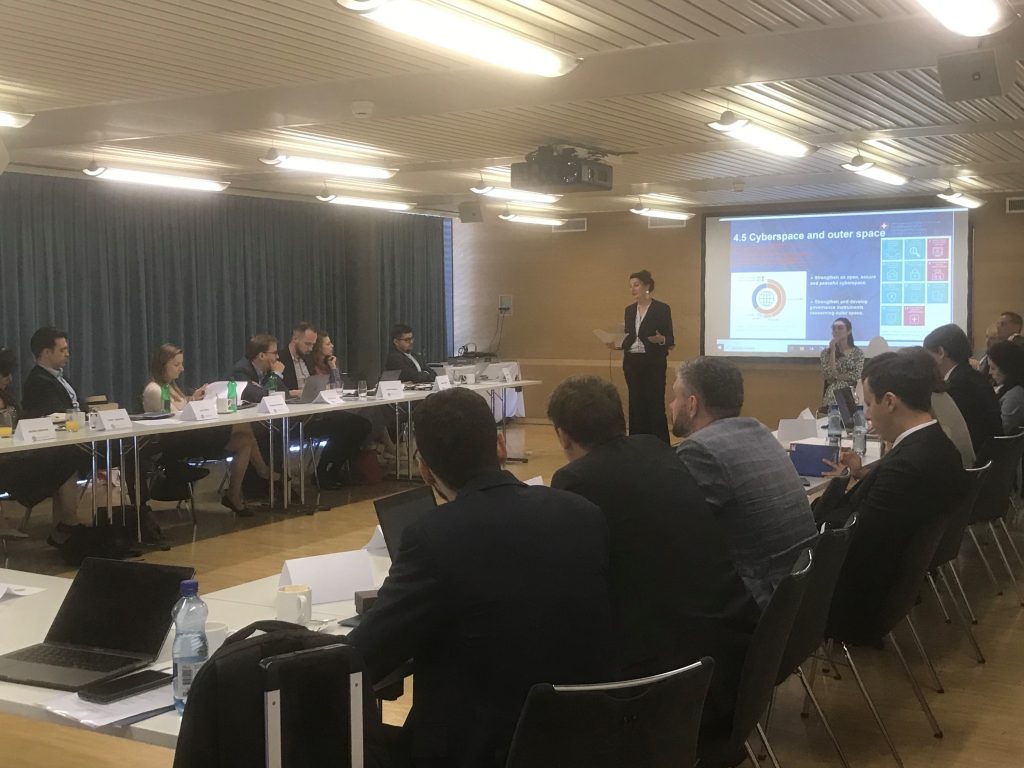
The Russia-Ukraine conflict was consistently mentioned in other contexts as well. For Geneva (which runs heavily on long-term norm development and international law) and Switzerland in general – which has long defined its foreign policy around neutrality – this is a difficult time. The Russian invasion of Ukraine has raised many questions regarding international law and norms, not just in Europe, but in the world as a whole. As a result, many YGLN members wanted to discuss practical aspects of the current situation, including how smaller European states would navigate the increasingly polarised world order, how international organisations and institutions would meet the daunting task of protecting norms in an era of increasing geopolitical competition and uncertainty, and how well-suited various approaches are to the current bloody conflict waged in Eastern Europe. The two Scandinavian missions that we met with – the Swedish and Norwegian missions – both dedicated their presentations to conflict resolution strategies, inviting a number of prominent experts and practitioners to discuss strategies used in past conflicts, as well as how to approach the current conflict in Ukraine. Other meetings, such as the one with the French Mission (shown below) also focused on practical military aspects of the conflict.
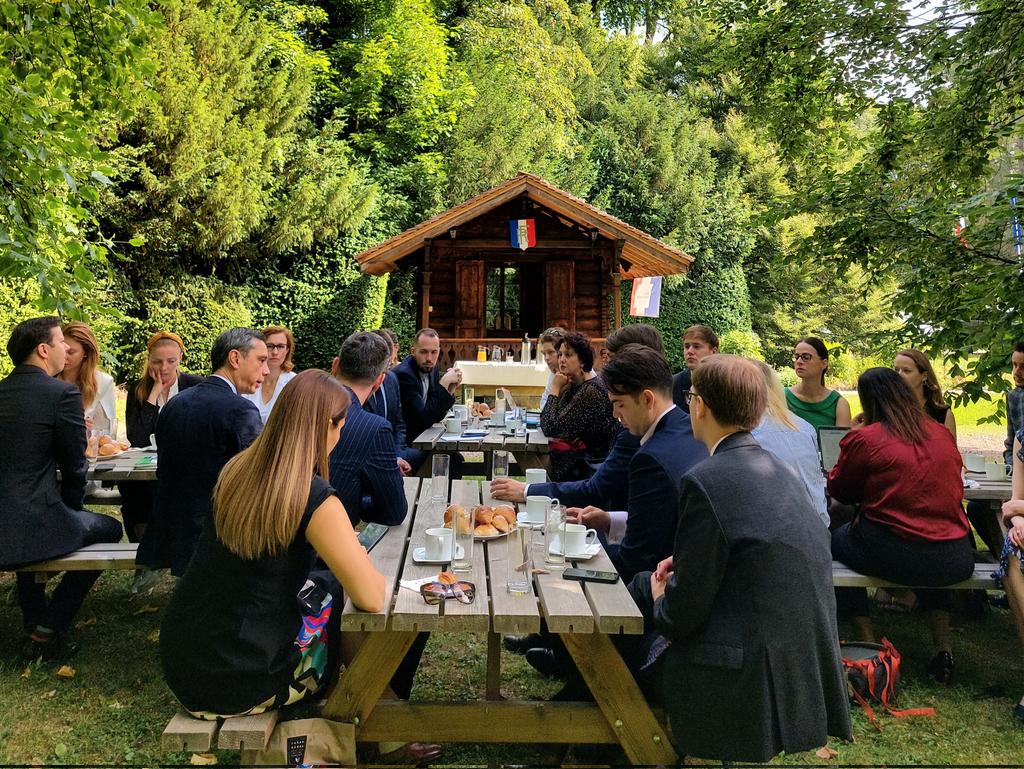
The issue of inclusivity was another area discussed at length. A majority of YGLN participants at this event were women – an important factor given the traditionally male-dominated nature of the security studies field, and a priority of the ELN. A number of conversations took place relating to inclusion, including a discussion of feminist foreign policy and its application to Switzerland’s foreign policy profile, as well as a meeting with Norway’s Permanent Representative and other experts (shown below) which focussed on gender issues in conflict and conflict resolution. Women’s roles in conflict prevention and resolution were discussed not just in theory, but also in practice, drawing on speakers’ experiences in places like Yemen and Sudan and applying lessons learned to the current conflict in Ukraine.
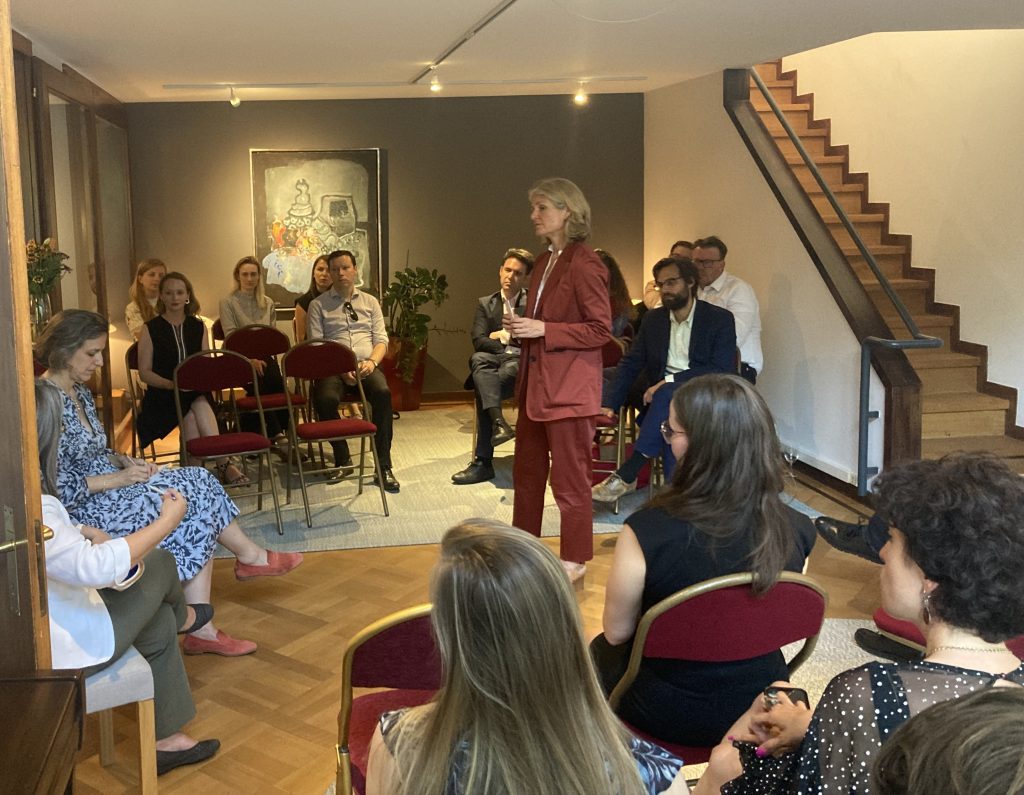
Finally, a significant feature of the conference was its informal aspect – the socialising that took place at and in between events. Virtual conferences were held during the COVID-19 pandemic to the best of every organisation’s abilities, but no virtual event can replace in-person gatherings with its coffee breaks, meals, excursions, etc. 26 YGLN members attended this conference – a number that ensured that every member could become acquainted with every other member to some degree during the conference while at the same time ensuring that the gathering was not so intimate as to become repetitive. Conversation was lively from the early morning to the late hours of the night, allowing members to cultivate relationships and connections.
In the current crisis, the YGLN and the ELN believe that such interactions are essential: by bringing together Europeans, Russians and North Americans and maintaining dialogue across oceans and across wide political divides, the YGLN is carrying out its primary purpose to “bridge the divide between Russia and the West and establish a much needed platform for understanding and dialogue at a time when relations between major powers were becoming toxic”. Today’s relationship is about as toxic as it gets, but gatherings such as this serve as invaluable venues for dialogue at a time when communication and mutual understanding are desperately needed – for the good of all parties involved.
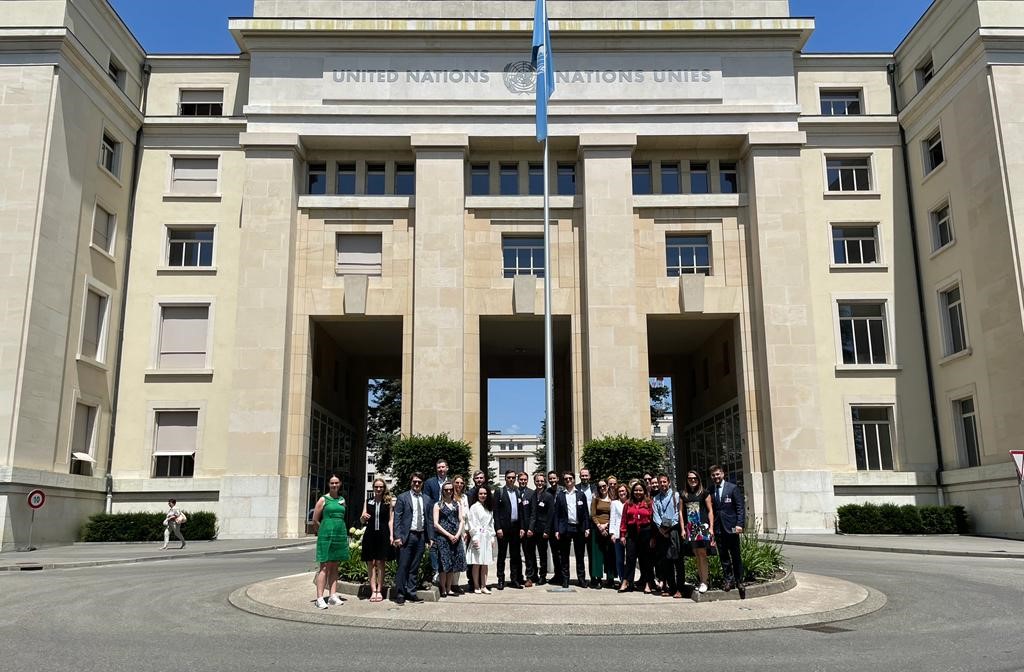
The opinions articulated above represent the views of the author(s) and do not necessarily reflect the position of the European Leadership Network or any of its members. The ELN’s aim is to encourage debates that will help develop Europe’s capacity to address the pressing foreign, defence, and security policy challenges of our time.
Images: All taken by ELN members, except for one taken by the French Mission.

